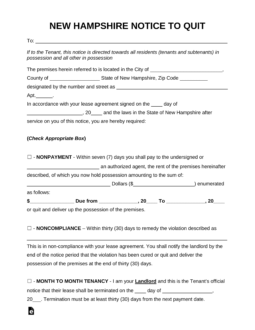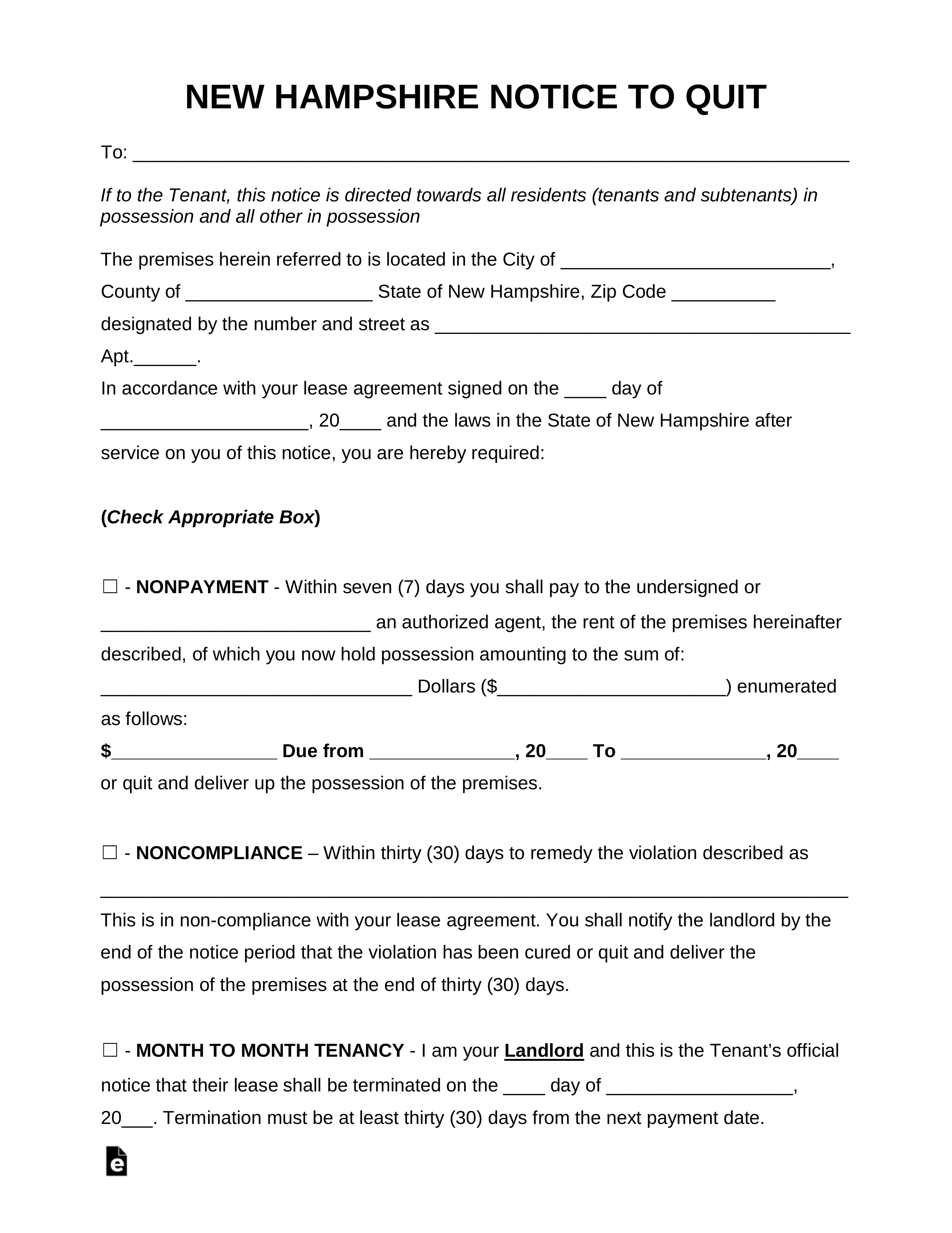Updated February 28, 2024
A New Hampshire eviction notice is a document used by landlords seeking to notify a tenant that they are no longer in compliance with their rental contract. The notice should include the specific violation and the steps the tenant must take to fix the issue. If the tenant does not return to compliance within the statutory term, the landlord can file an eviction lawsuit at the local district court.
By Type (2)
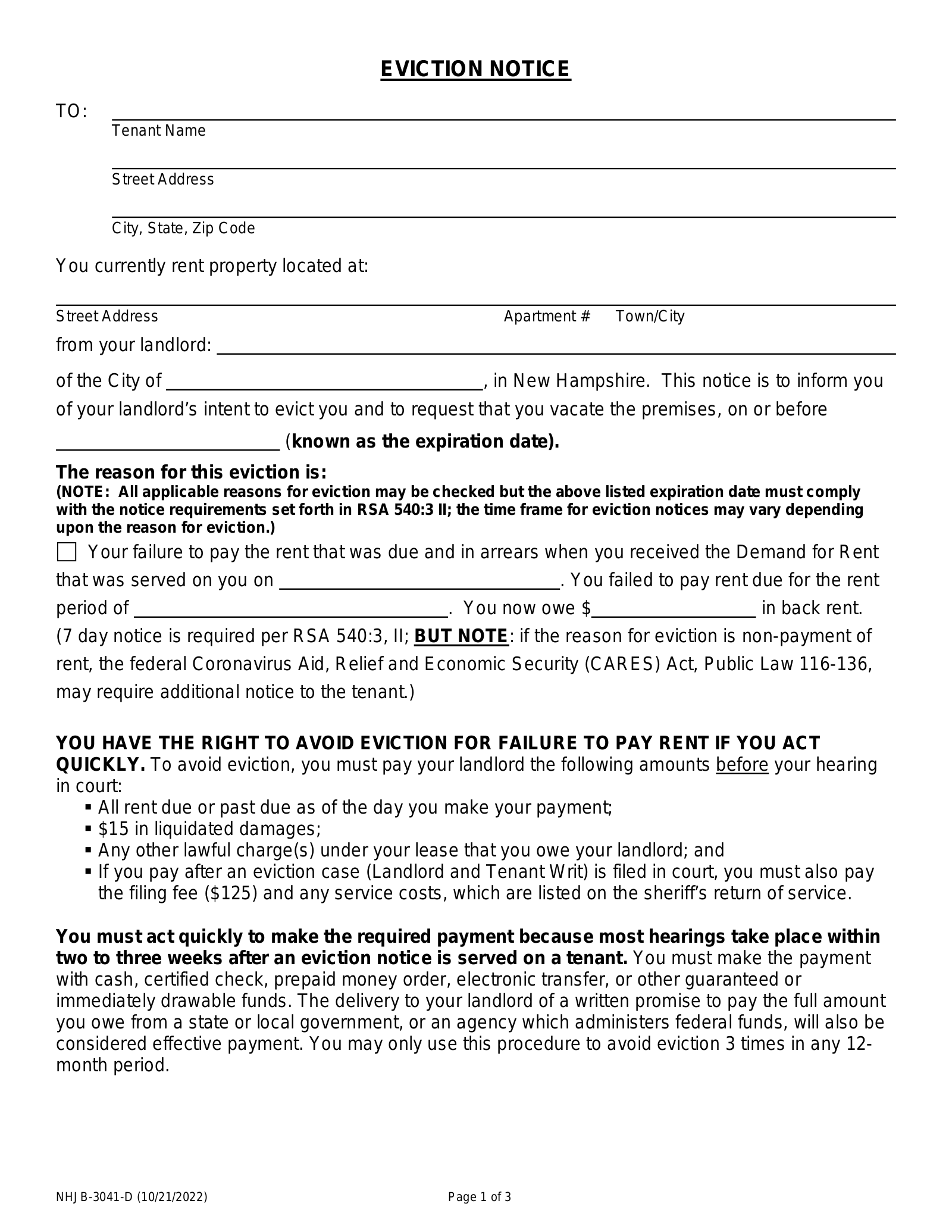 Notice to Quit (For All Lease Violation Types) – Check the appropriate box on the form that best matches the tenant’s violation: Notice to Quit (For All Lease Violation Types) – Check the appropriate box on the form that best matches the tenant’s violation:
Non-Payment of Rent – 7 days’ notice with a Demand for Rent. Download: PDF |
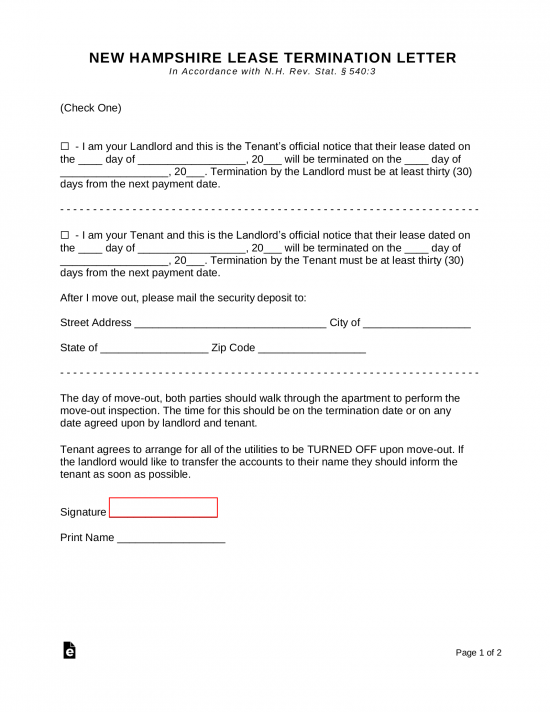 30-Day Notice to Quit (Month-to-Month Tenancy) – This form can be used when either party wishes to end a month-to-month tenancy. 30-Day Notice to Quit (Month-to-Month Tenancy) – This form can be used when either party wishes to end a month-to-month tenancy.
Download: PDF, MS Word, OpenDocument |
Table of Contents |
Prohibited Landlord Actions
Utility Shutoff – A landlord is legally prohibited from willfully causing the interruption or termination of any utility service supplied to the tenant, including water, heat, light, electricity, gas, and more.[5]
Changing the Locks – A landlord is legally prohibited from directly or indirectly denying a tenant access to their rented or leased premises other than through a court order.[6]
Court Forms
Landlord and Tenant Writ (NHJB-2333-DP) – To file an eviction case against their tenant, the landlord will need to obtain this form from the District Court Clerk’s Office. The court will charge fees for the document as well as the filing of the case and supporting documents.
Affidavit of Damages and Statement of Claim – If the tenant is being evicted for delinquent rent payments, this affidavit is used by the landlord to file their claim (must be notarized).
Affidavit of Ownership – The landlord may be compelled by the court to complete this affidavit which states their ownership of the property concerned.
Affidavit of Military Service – This form states the tenant’s military service (if any).
Appearance Form – This form is used by the tenant if they wish to confirm their presence at the eviction hearing.
How to Evict a Tenant (3 steps)
- Deliver Demand for Rent or Eviction Notice to Tenant
- File Forms with District Court
- Obtain Writ of Possession
1. Deliver Demand for Rent or Eviction Notice to Tenant
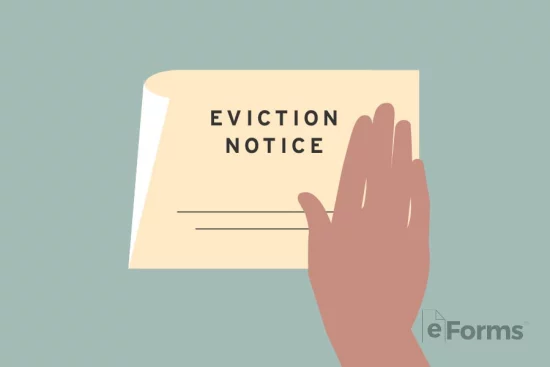
In New Hampshire, before a landlord can begin eviction proceedings, he or she must inform the tenant of any breach of the lease and give them an opportunity to fix it. If it is a breach for non-payment, the landlord must deliver a Demand for Rent and an Eviction Notice and give the tenant seven days to pay.
If it is for a breach other than non-payment of rent, the landlord may provide a non-compliance notice, such as a Notice to Quit (For All Lease Violation Types).
2. File Forms with District Court
If the tenant fails to cure the breach (either pay all the rent that is due or fix the issue that caused the lease to be violated), the landlord may proceed to the local district court and file the following forms:
- Landlord and Tenant Writ (NHJB-2333-DP)
- Affidavit of Damages and Statement of Claim
- Affidavit of Ownership
- Affidavit of Military Service
In addition, the Appearance Form will schedule a hearing date, and there will be a fee assessed in the amount of $125 plus $1 for the Writ.[7]

